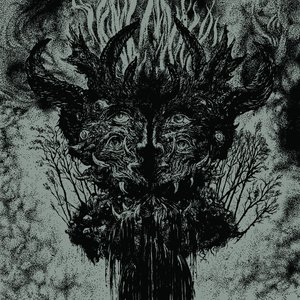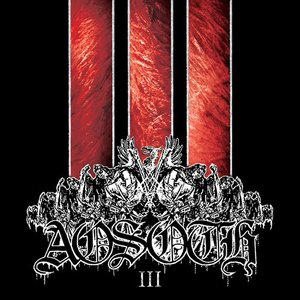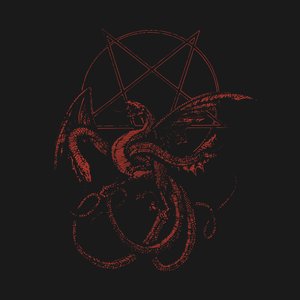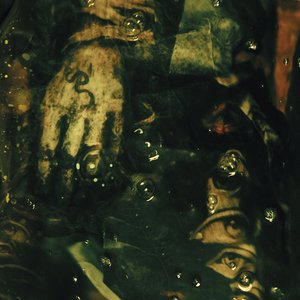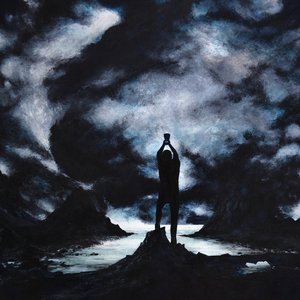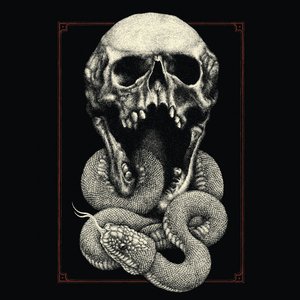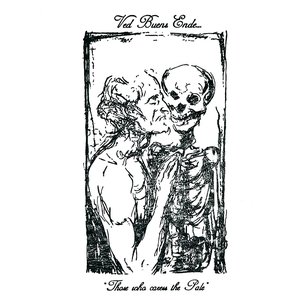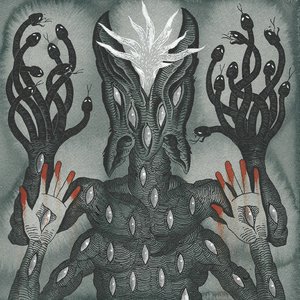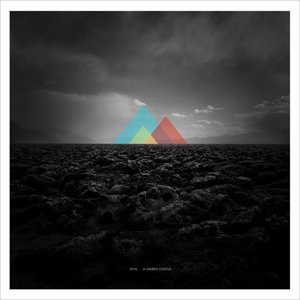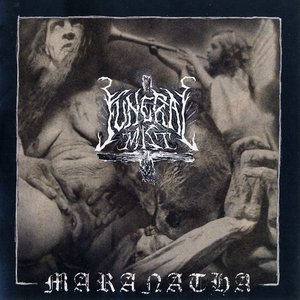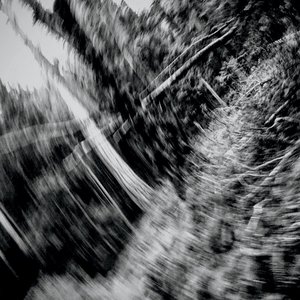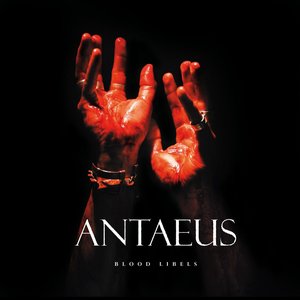Wiki
-
Release Date
23 March 2022
-
Length
5 tracks
The Consequences of Misinterpreting Heraclitus:
The song “Eadem, Sed Aliter” has been stuck in my head a lot over the past several weeks, and it’s less so because of the music and more so because of the lyrics and their message. The Long Defeat is touching on many important things - mankind’s unbridled Machine, the “forever-festering wound” at the basis of human nature and all civilization (which is presumably the same “everlasting scission” mentioned in Chaining the Katechon), and the merging of seemingly opposite concepts - but to me, the most important message of the album, its thesis statement arguably, comes from near the end of “Eadem, Sed Aliter”. It’s when a king is being punished in a manner he finds cruel and unwarranted despite conquering and claiming victory over the world in a fashion he believes is fair and square:
“Carrion beetles pouring from his mouth:
But isn’t strife the core of existence?
And progress the arkhè of our lives?
I won this world with sword and fire
And carved it to my image!
My claim to the throne is just!”
Strife, progress & fire
Those three words sum up, I think, the core of Deathspell Omega’s primary message on The Long Defeat. All three of them are core concepts of Heraclitus’ philosophy, and I believe the band is holding humanity accountable for misunderstanding them, that in fact much of the chaos and calamity that civilization has been responsible for throughout the aeons can be traced back to a fundamental misunderstanding of these three ideas.
Three short preambles before I begin:
1. Carrion Beetles
The phrase “Carrion beetles pouring from his mouth” is mentioned twice in this song and once in the fable. Carrion beetles are widely regarded by various biologists and entomologists as the ultimate experts par excellence in decomposition. There is perhaps no other species more adapted and more efficient at the process. They are superb at discovering and catalyzing dead and putrefying organisms. As a result, they are widely considered to be a quintessential example of a creature representing the circle of life and death by scientists around the world.
Deathspell Omega are clearly invoking these beetles to really hammer home how much of a cadaver humanity is turning itself into (Remember Fas: Perinde ac cadaver!), but I suspect it’s also hearkening back to the beginning of the second era, as Si monvmentvm reqvires, circvmspice was loaded to the brim with themes and images of decomposition, putrefaction and other aspects of the 8 stages of death. Deathspell Omega is one of the very few bands that has what I like to call a “concept discography” so many things from this album can provide new lenses to go back and re-interpret older works.
1. Enantiodromia
Assuming anyone’s done quick googling on the subject, “enantiodromia” is primarily connected to Carl Jung, though he admits the idea goes all the way back to Heraclitus, despite coining the modern term himself.
Now, the idea might seem like abstract nonsense to some people at first glance. How can something, physically or psychologically, turn into its complete and total opposite? I think there are actually a few simple examples that illustrate this.
If you stare into an extremely bright light for too long, you go blind - the result is pure darkness (Paracletus discussed this briefly on “Phosphene”). If you subject yourself to incessant loudness, your ears go deaf - the result is pure silence. The same concept can be applied to intelligence, something that Lovecraft was famous for doing: too much knowledge of the unknown and the cosmos can render a person insane and unintelligible. Just as “losing your marbles” can turn you crazy, I think the human brain has a max limit, that it can only hold so many “marbles”, so to speak, before it cracks from the pressure. I believe this is part of what the band was getting at in the 2004 Ajna Offensive interview when they said “the light that illuminates us is the very same that blinds us too.”
Many things in life are a double-edged sword. This is something the audiophile community understands intuitively. It’s a bit of a half-truth to say that high-fidelity equipment will improve your audio. It will make the good parts sound better like crisp recording techniques and good tones, textures or timbres, but it will also make the bad sounds more apparent as well, like brickwalling, clipping, hisses and pops, etc. Imagine if your sense of smell improved dramatically - flowers would smell more potent, but so would feces.
The concept works psychologically, too. Imagine an anti-fascist who is so paranoid of living among fascists that he takes any measures to discover and eliminate them, including actual fascist techniques like circumventing diplomatic or constitutional rights. This accurately mirrors some of the techniques employed by Stalin, Hitler and Pol Pot (and, quite frankly, many of the policies that the United States passed after 9/11), and it also neatly fits in with Nietzsche’s famous phrase about the abyss staring right back into you. Anti-fascism without checks and balances, while nominally distinguishable, is categorically and functionally indistinguishable from fascism. I think this is one of the points the band was trying to get across in The Furnaces of Palingenesia.
Enantiodromia is something the band has been dealing with for many years now, actually. Several lyrics from Fas, Mass Grave Aesthetics, Synarchy and others have discussed this fine balance between seemingly oppositional dualities turning and merging into each other. Again, keep the idea of a “concept discography” in mind.
1. Polemos
The man with carrion beetles pouring from his mouth is, I believe, Polemos, something that the fable corroborates. This is another concept of Heraclitus, though it doesn’t actually originate with him and is more a construct of Ancient Greek mythology in general. Polemos is meant to be seen as a deity or personification of warfare and any major creative or destructive force in general, though I admit my understanding of the idea is by no means complete. If the history of humanity is meant to be made analogous with Polemos in the fable, then Deathspell Omega are using his violent tendencies as a proxy stand-in for the history of human destruction (and self-destruction).
Okay, now the three main arguments: Strife, Progress and Fire.
1. Strife
Out of the three terms here, this is the one I find the most commonly misinterpreted by far. Many think Heraclitus meant strife as “suffering” or “everlasting battle” but these are both not only incorrect but, as I hope to demonstrate later, deeply naïve and self-destructive. Depending on the translation, you may see strife also written as “conflict”, “tension”, “friction” or some other similar word, but the semantics & etymology are largely irrelevant here.
All Heraclitus meant to say is that the basis of existence revolves around a balance (and this is truly the keyword here: balance) of friction and tension to create new life or new matter. This can be easily demonstrated with a few simple examples. Think back to Ancient Greece when Heraclitus was alive, 2500-2600 years ago. How did people create fire back then? With sticks and stones, essentially. But it’s not just the tools that matter, it’s the tension and the “strife” between the sticks and stones that actually creates a fire. And since fire is associated with food and light, it becomes a symbol of prosperity or “new life” to the Greeks if you will.
Sex is another easy example. Not enough tension and it’s too boring; too much tension and it becomes uncomfortable. Proper sex is about finding a balance of the right kind of friction or “strife”, if you will. And just like the previous example, new life (literally, in this case) is born from the process.
If I recall correctly, the main example Heraclitus used himself to show that strife is the core of our world was a bow. Bows by definition require tension and strife to function properly at all. If you pull the string too softly, the arrow will barely fire. If you pull the string to hard, it will snap and break. But the right balance of tension and strife makes the bow function perfectly. Again, a balance of strife is necessary for almost anything to work in life at all. When you exercise at the gym, is that not a form of strife? Exercise by definition is self-inducing stress to improve your stress-response system, after all, be it your organs or muscles or immune system. When you’re problem solving and thinking really hard, or even engaging with different opinions, is that too not a form of strife in its own way?
What goes wrong is when people, as Deathspell Omega put it, “sneer at the dance around balance”. Too much strife is what they are accusing us of. More importantly, based off the lyrics, it’s also a fundamental misinterpretation of reading strife not as tension, but as war, battle, suffering and destruction.
When “strife” is interpreted as a balance of properly directed pressures and forces to create new substance, all is well (I suspect this is what the band meant, discussing the political differences among their members, when they said “…when you allow and even invite conflict and chaos at the core of the matrix, you enhance the possibilities infinitely. Ironically, by taking this approach – which in many ways mimics life itself…” in the 2019 Bardo Methodoloy interview). But when “strife” is interpreted as never-ending conflict and discord that results in environmental and civilizational destruction, all is doomed.
The man with carrion beetles pouring from his mouth, Polemos, is the end result of anyone who sees the strife of life as an excuse to pillage and conquer the world, with all that destruction eventually making its way back to him, not unlike the consequences of humanity’s own environmental carelessness resulting in energy crises and climate change.
So yes, strife is the core of existence, but too much strife is the core of, let’s say, non-existence.
1. Progress
Heraclitus is most famous for his phrase “You cannot step in the same river twice” and various versions or rephrasings of this idea. It’s proven to be one of the most influential aphorisms in the history of philosophy, going on to even inspire thinkers like Philo of Alexandria and many Neoplatonics centuries after his death. Even Nietzsche, a man who was deeply critical of most Greek philosophers, especially Plato, sang his praises for Heraclitus on more than one occasion.
The basic gist is that Heraclitus believed that the world and universe are in constant progress or “flux” and that nothing is truly ever stagnant, physically or otherwise. Even dead bodies are experiencing movement and decomposition at a microscopic level, and the atoms of rocks are always vibrating even if they seem immobile to human eyes. This is becoming a more popular idea in mainstream science, psychology and philosophy so it is by no means an obscure, abstract concept.
As a quick side note, this is part of what Heraclitus meant when he said “Nature loves to hide herself” and is deeply linked to Nietzsche’s curious phrase “Suppose Truth is a Woman - what then?” You can’t understand the world properly or accurately at face-value or through sheer brute force. It often requires a more unique, subtle touch. Very little is what it seems, and you can’t always trust your eyes or senses. If Truth could be discovered that easily, we’d all still believe the Sun is revolving around us and not the other way around. If Truth could be discovered that easily, why even need science or philosophy in the first place?
As an additional side note, “arkhè” simply means “essence” or “origin” in this context. It is not meant to be confused or conflated with other Greek terms like “eidos” or “logos”, the latter of which is extremely important in Heraclitus’ thought. So in other words, progress or flux is the origin/essence of existence.
Deathspell Omega is saying that humanity’s misinterpretation is confusing progress as a phenomenological dynamic for progress as an ideology, something that is implicitly criticized on The Furnaces of Palingenesia (particularly the lyrics to “1523”) and explicitly criticized in the last interviews.
Again, balance is the keyword here. When “progress” simply refers to the movement of the celestial bodies, the cycle of life and death in Mother Nature and all the other natural elements of the world combining and recombining to form new substances, this is a proper takeaway. But when “progress” is used to refer to sociological and technological human forces, it can be used to justify any amount of unfettered and irresponsible growth that is doing more harm than good to the planet and its species. This “ideology of progress” claims that any kind of change, growth or improvement is good and justified, as long as it is done on Man’s terms. This is almost certainly tied to the critiques of anthropocentrism that the band talked about in the interviews. Human progress is always seen as a net positive and therefore always justified, even if it comes at the cost of the “progress” of the rest of the planet, including other humans.
1. Fire
“The Cosmos always was and is and shall be an ever-living fire, kindling in measures and going out in measures, and also are all things an exchange for fire, and fire for all things, as gold is for goods and goods for gold.” - Heraclitus
At first glance, the concept of fire seems intertwined with Heraclitus’ concept of progress or flux to the point that it’s just a simple variation on the same theme. Fire is a fantastic example of the world in flux because it is always moving and never stagnant, constantly in a state of transformation, but there’s a more important concept going on that’s stacked on top of this.
Fire isn’t just always moving, it’s also always existing in a physical trade-off, if you will. There is always an exchange going on with fire - it is a perpetual dynamic of burning oxygen and turning it into heat and carbon dioxide. This is what Heraclitus meant when he said the arkhè of the world and the cosmos is fire: everything in life is a sacrifice or a trade-off of sorts. Everything in life comes with a price. Every life is born from a death, and every death gives birth to new life.
And as I mentioned earlier in the section on “Strife”, fire was an important symbol for Ancient Greek culture in general. Everyone relied on fire to exist and function properly, be it the fire from a baker’s oven, the fire of a blacksmith’s forge or the fire of various religious rituals. As complex as the polytheistic theology of Ancient Greece was, many of them agreed that fire was a deeply important element of the world, both immanent and transcendent.
There’s also a dual nature to fire that can be used to explain key facets of the world. Think back to the double-edged sword preamble I discussed earlier regarding enantiodromia: fire can provide comfort but can also scold and burn; fire can provide light in the darkness but can also create smothering smoke (certain sections of Greece are famous for their volcanoes, after all). The domestication of fire by humans is for Heraclitus the ultimate example of how people have come to make their way throughout life, for better and for worse. Many things in life are a double-edged sword. Remember: the light that illuminates us is the very same that blinds us too.
And quite appropriately, as far as I can tell, there’s a dual misinterpretation that Deathspell Omega is highlighting: taking the idea of fire too literally (similarly to the misinterpretation of strife) and creating an imbalance of fire (similarly to the misinterpretation of progress).
Now, it’s important to note that even to this day scholars and historians still debate on what exactly Heraclitus meant by fire being the arkhè of our world. This is made more complicated by the fact that many other pre-Socratic thinkers had slightly similar thoughts on the nature of existence: Empedocles’ theory on the four constitutive elements of the world, Thales’ theory on the world’s origin being water, and Anaximenes’ Doctrine of Air. There is a growing consensus that Heraclitus was speaking metaphorically rather than literally, and that’s the perspective I’ll be taking here.
In The Long Defeat, Polemos wins the world by “fire” but he doesn’t mean a metaphorical kind of fire that represents change, transformation and flux, he means actual, literal fire. He took the idea of fire as an “exchange for all things” to the most extreme conclusion. He thought that if he conquered the entire world through warfare, sword and fire that he would then be allowed to exchange it all for a world perfectly fit for him. He thought that destroying the planet would reward him with a planet of his own, as if he was turning in gold for goods. He means burning down the world and attempting to conquer it without any sense of stability or equilibrium. But it obviously doesn’t work despite his surprise and dismay because there is no world left to even partake in the exchange. It’s the sociological and civilizational equivalent of burning your own house down and claiming “victory” over it. This is his most dire misinterpretation of Heraclitus, and it resulted not only in the destruction of the planet but himself as well.
Yes, the arkhè of the world is fire, and all things do come with a sacrifice, but make a trade too big and be prepared to pay a price too grave.
So in “Eadem, Sed Aliter” when Polemos laments and complains that he did nothing wrong and was only following the rules of strife, progress and fire, and therefore doesn’t deserve any retribution or punishment, hopefully all this helps explains where exactly he (and by extension, us) went wrong. Strife, progress and fire can all serve creative purposes or destructive ones, and failing to wield them properly is even more dangerous than failing to use a gun or a sword properly.
As The Long Defeat makes pretty clear, when balance is broken, what goes around comes around. Live by the strife, die by the strife; live by the progress, die by the progress; live by the fire, die by the fire.
This essay was written by versionJBT: https://www.last.fm/user/versionJBT
Album descriptions on Last.fm are editable by everyone. Feel free to contribute!
All user-contributed text on this page is available under the Creative Commons Attribution-ShareAlike License; additional terms may apply.

